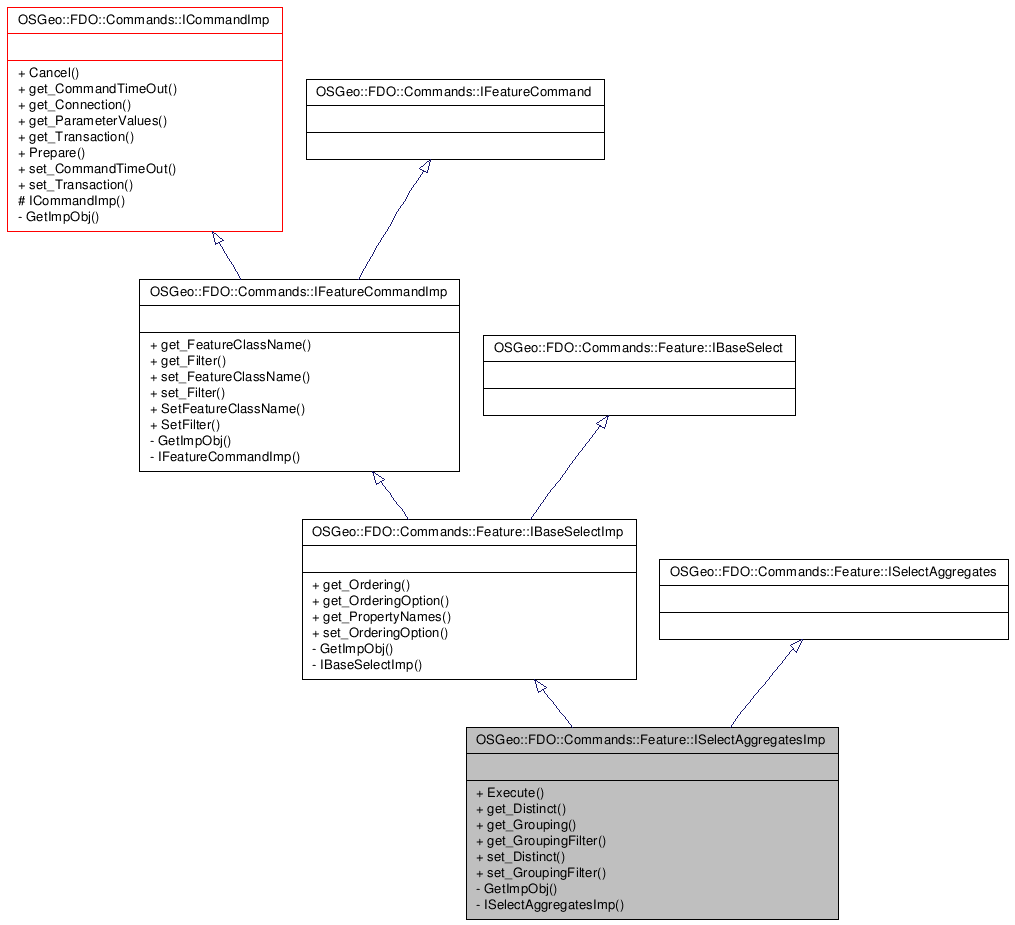
| FDO .NET API Reference | Feature Data Objects |
Inheritance diagram for OSGeo::FDO::Commands::Feature::ISelectAggregatesImp:

()
Definition at line 45 of file mgISelectAggregatesImp.h.
Public Member Functions | |
| OSGeo::FDO::Commands::Feature::IDataReader * | Execute () |
| Executes the select command and returns a reference to an IDataReader. | |
| __property System::Boolean | get_Distinct () |
| Get the distinct option. | |
| __property OSGeo::FDO::Commands::IdentifierCollection * | get_Grouping () |
| Gets the IdentifierCollection that holds the list of group by property names. If empty no grouping is used. This list is initially empty and the caller need to add the property that the command should use as a group by criteria. No LOB or Geometry type properties can be used for ordering. | |
| __property OSGeo::FDO::Filter::Filter * | get_GroupingFilter () |
| Gets the grouping by filter. | |
| __property System::Void | set_Distinct (System::Boolean value) |
| Set the distinct option of the selection. Non-simple properties such as object properties, geometry properties, raster properties, association properties, etc. will not be supported with Distinct. | |
| __property System::Void | set_GroupingFilter (OSGeo::FDO::Filter::Filter *filter) |
| Set the grouping by filter. Use the grouping filter to restrict the groups of returned properties to those groups for which the specified filter is TRUE. For example "order by city" and "min(lanes) = 2". The Filter have to evalute to a binary value(true or false). | |
| Comments or suggestions? Send us feedback. |